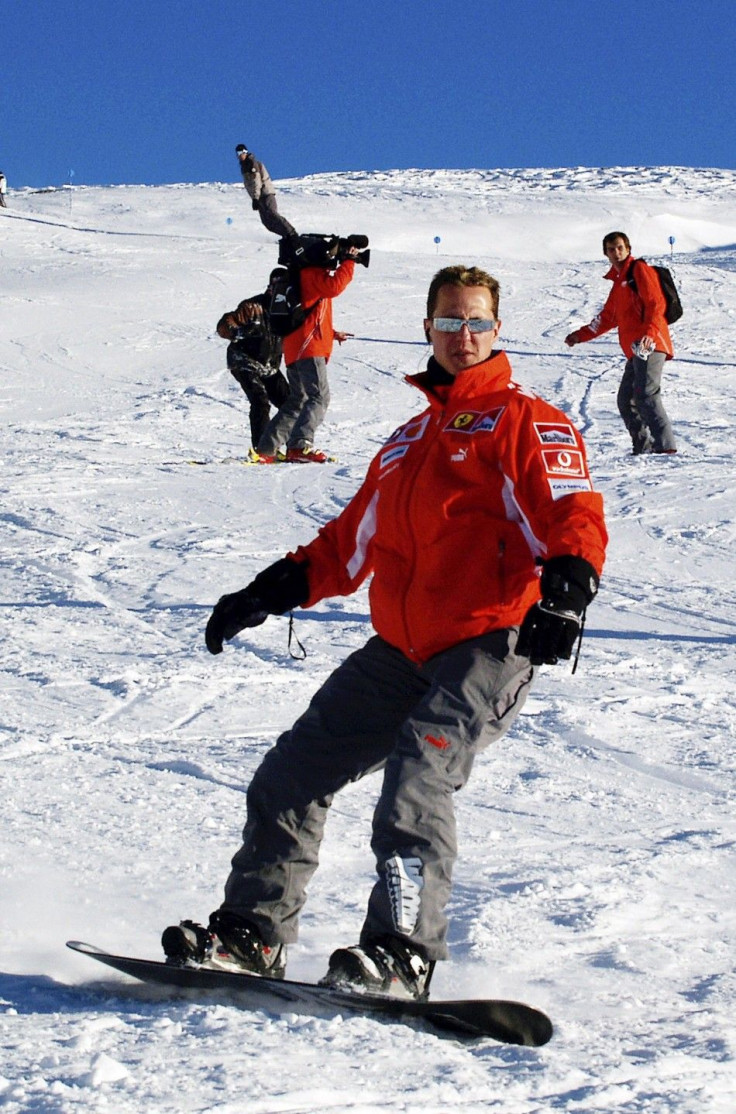Michael Schumacher Recovery Update: F1 Ace Still 'Unable to Walk or Talk'

Formula One Ace Michael Schumacher is still unable to talk or walk after reports he is currently out from the artificially induced coma.
The reports came a week after Schumacher was announced to have awaken up from his six-month long coma. The seven-time Formula One World Champion had been in a coma since Dec 29, 2013 following a skiing accident where he smashed his head in a rock while skiing off-piste.
The incident caused major headlines worldwide when reports first came out that the racer had been airlifted out of the ski resort in Mirabel, France to a hospital in Grenoble.
News of his surgeries came out and his artificial coma stretched on for weeks then several months as the prognosis looked grim.
It was only the previous week when solid good news was finally announced. Schumacher was transported to a rehabilitation facility in Lausanne, Switzerland after having been confirmed to have shown positive vital signs. The facility is only approximately 20 kilometers away from the Schumacher family home, which he shares with wife Corinna and their two children.
Michael Schumacher wakes up from coma and can nod and keep eyes open for long periods. Despite the good news that the thlete can now communicate with his eyes and can nod to express himself, he still can not talk.
The Mirror reported that top neurologists believe that Schumacher will never make a full recovery.
"He will remain an invalid all his life and will always remain dependent on others' help," Neurology Expert Erich Riederer said.
Meanwhile, concerns about his wife Corinna and her own health are being raised after she has been constantly at his side during the six-month long ordeal, which is expected to extend indefinitely.
"If the wife is to assume that she must deliver a very one-sided support in the future, this one-sidedness makes no real partnership. She will for sure have need for a break and rest and she should give in to that," Dr. Rüya-Daniela Kocalevent, a psychologist from Hamburg, said in an interview with Bunt Magazine.
"Anxiety and depression are common reactions among family members dealing with such things. A little professional support during his rehabilitation could take the pressure off the long-suffering wife. Corinna should create a network of caregivers, so that she can meet the need for downtime and quiet without guilt," she added.





















